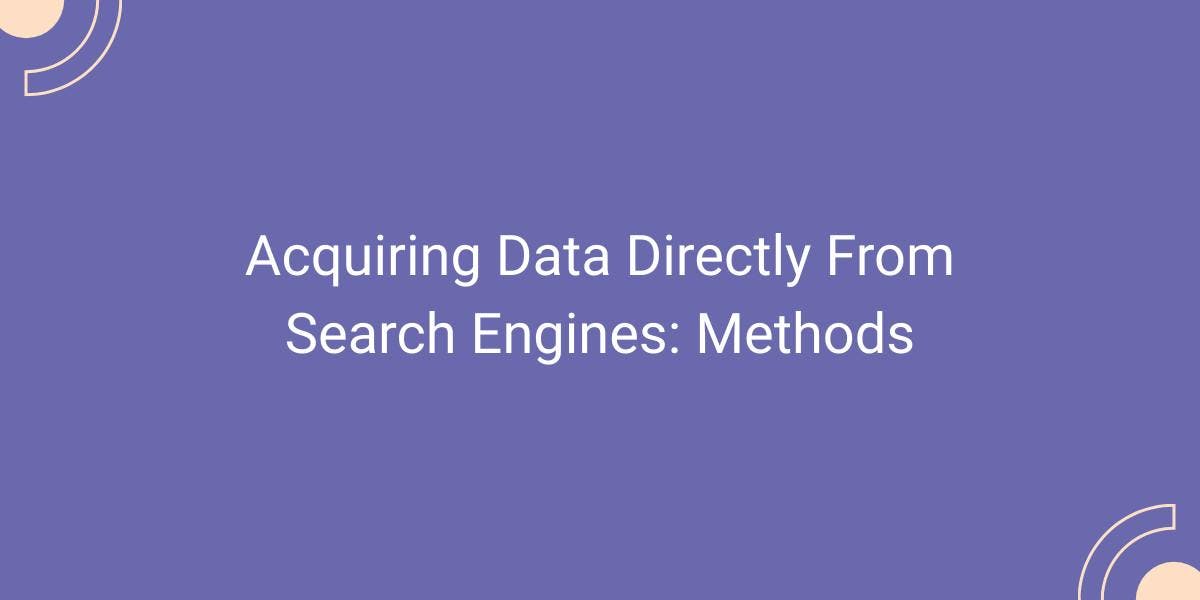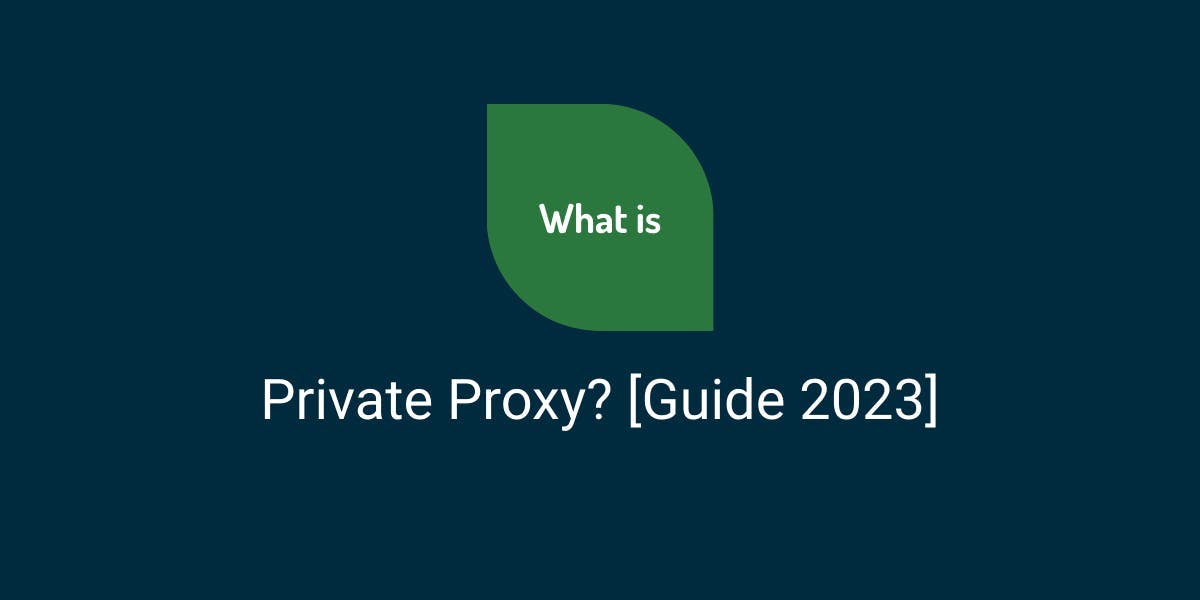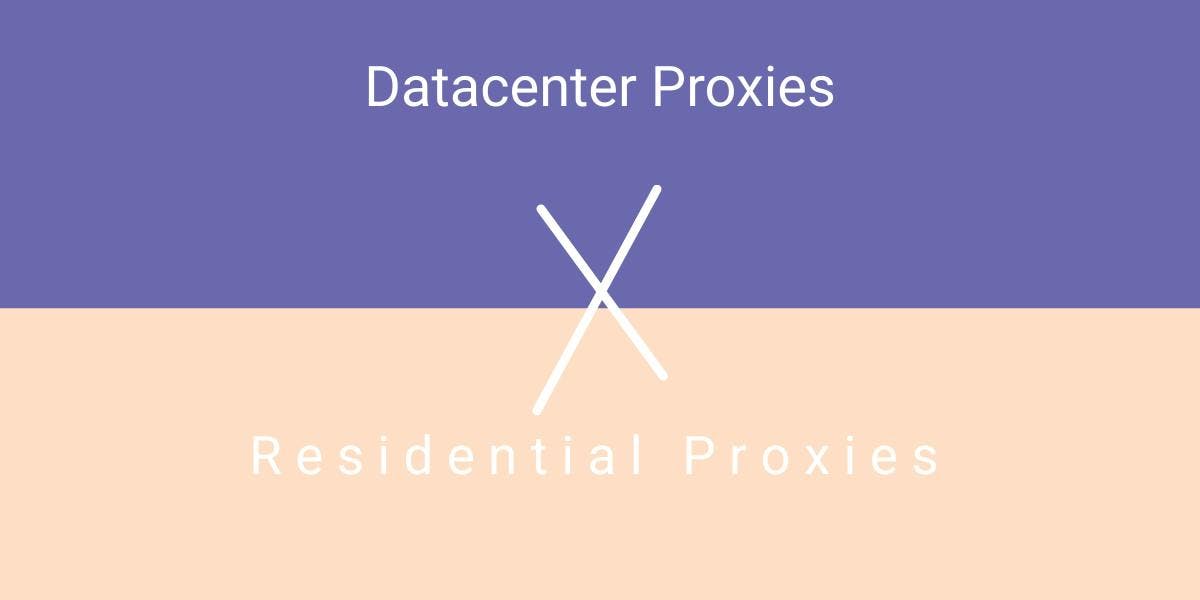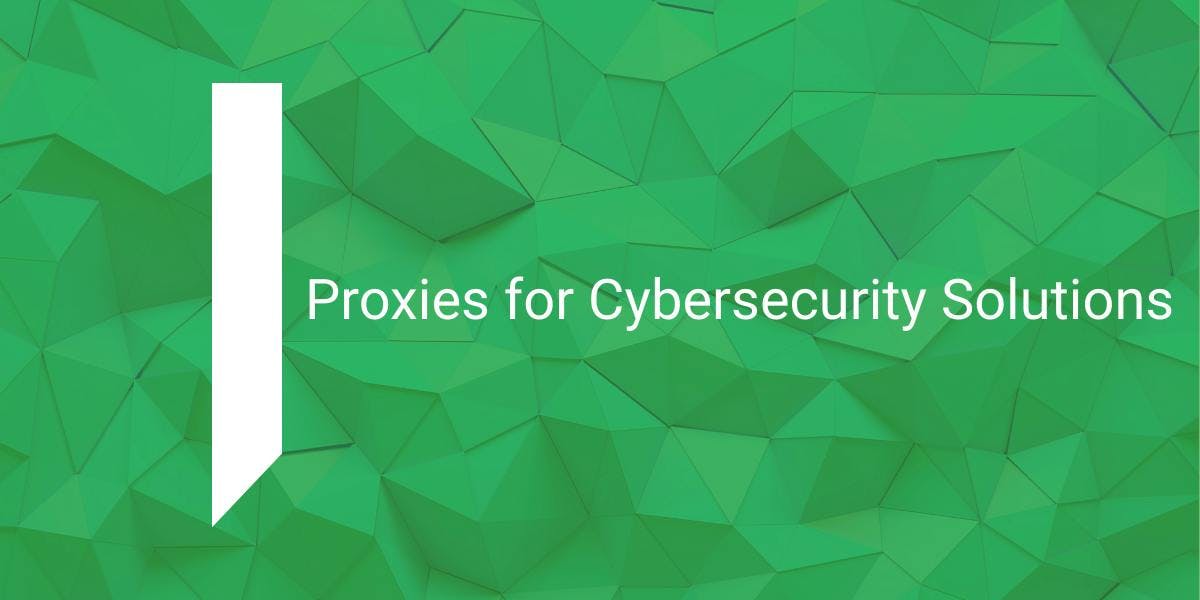Acquiring Data Directly From Search Engines: Methods
Flipnode on May 12 2023

In 2019, search engines accounted for almost 30% of global web traffic. It's no surprise that companies want to get as much organic search traffic as possible, which is why the Search Engine Optimization (SEO) industry is estimated to be worth $80 billion. Google still dominates the market, holding nearly 90% of the market share, and its data is highly valuable to many businesses.
The relevance of acquiring data from search engines is higher than ever. Search Engine Result Page (SERP) data can help companies generate more organic traffic than ever before. However, as the value of this data increases, so does the difficulty of acquiring it.
This article will delve into how companies use data from search pages, the challenges that arise when scraping search engines, and the most common methods of data acquisition, including in-house built web scrapers with proxies.
Why do companies collect data from search engines?
Data from search engines hold significant value for almost all industries. The use cases are closely related, as they all share the same goal: to gather information that can help improve search engine rankings and drive more organic traffic to company websites.
Search Engine Optimisation (SEO)
SEO service providers utilize web scraping techniques to collect data on top-ranking blog posts and product pages in SERPs. This information empowers marketing teams to compete with their industry's leading web pages on search engines.
Similarly, businesses gather significant amounts of metadata, including meta titles and descriptions, and analyze it to determine optimal practices.
Keyword research
Similar to SEO applications, companies also leverage SERP scraping to identify the keywords that their competitors are ranking for. For instance, if your business offers cybersecurity software, you would want to know the keywords that other companies in the industry are utilizing. This information enables you to optimize your website to appear as a top result when potential customers search for cybersecurity software.
Another use case is gathering search queries related to your business. For instance, if you provide SEO services, you would need to identify the queries that people enter into search engines to find similar services and target relevant keywords to improve your visibility in their search results.
Ad campaigns
By scraping SERPs for ad campaigns, companies can gain insights into the types of Pay Per Click (PPC) ads their competitors are running. This allows them to target the right keywords with their ads, even if their organic ranking is not optimal, and get noticed by a broader audience. This competitive intelligence helps companies optimize their PPC strategies and improve their visibility in search results, resulting in increased visibility and potential customer engagement.
Competitor monitoring
The primary use case for acquiring data from search engines is to monitor competitors. All of the previously mentioned use cases ultimately lead to this one goal: keeping track of what other companies are doing to rank higher in SERPs.
However, competitor monitoring can also encompass other activities, such as tracking mentions of specific companies in the media or monitoring updates to their products or content. This type of monitoring may even lead to the adoption of new business strategies and staying up-to-date with industry news.
Scraping search engines – challenges
As a general rule, the most valuable things are often the most difficult to acquire. The same holds true for data from search engines, as scraping SERPs presents its own set of challenges:
Resources
Acquiring SERP data can be resource-intensive depending on the scraping method used. It may require significant resources in terms of cost, technical expertise, and time. In the upcoming sections, we will review various popular SERP data acquisition methods, and you will see which options are more resource-efficient.
CAPTCHAs
CAPTCHA (Completely Automated Public Turing Test to Tell Computers and Humans Apart) is a common challenge in web scraping. Websites often detect and block bot-like activity, disrupting the web scraping process. In-house built web scrapers may not have the capability to automatically solve CAPTCHAs, resulting in slowdowns in data acquisition projects.
Blocks
Websites being scraped may block the IP addresses of the scraping activity, resulting in disruptions. Sometimes, a single IP address may be blacklisted, but using datacenter proxies may lead to an entire subnet being banned. These blocks can slow down web scraping projects and increase costs. However, there are methods to avoid getting blocked and maintain smooth data acquisition processes.
Hard-to-read information (unstructured data)
Even if web scraping is successful and companies are able to extract the desired data, it may still be of little use if it is unstructured and difficult to read. Converting such data into usable content may require additional resources. Hence, when selecting a web scraping method, it is important to consider the format in which the data will be returned to ensure its usability.
How to scrape data from search engines?
Gathering data manually
Manual data acquisition involves manually going through SERPs and copying and pasting website URLs. This approach is often used for very small projects and can be done using browser plug-ins or scraper software. It requires minimum technical knowledge and resources, making it accessible to beginners who can follow tutorials to scrape data.
Pros:
- Suitable for small projects
- Requires minimum technical knowledge and resources
Cons:
- Not suitable for large-scale projects
- Time-consuming
- Potential for human error
- Proxies and in-house web scrapers
Companies with a skilled team of developers may opt to build their own web scrapers. With a robust proxy pool, in-house web scrapers can offer benefits such as automated scraping, customization, and reduced dependency on external service providers.
Pros:
- Automated scraping
- Customization options
- Less dependency on service providers
Cons:
- Proxy maintenance
- Requires technical knowledge
- May not always deliver desired results
- Time and resources needed for building a proper web scraper
Using web scraping solutions
Identifying a web scraping service provider is relatively easy, but finding a reliable and effective one can be more challenging. However, for large-scale data extraction from SERPs, outsourcing web scraping solutions can be the ideal choice.
Pros:
- Minimal upkeep required
- A reliable stream of data
- Minimal technical knowledge needed
- No need for an in-house team of experts
Cons:
- May be expensive for very small projects
- Requires thorough research to find a reliable service provider
Conclusion
Obtaining search engine data can be challenging, but the value it brings to companies is significant. There are multiple options for search engine scraping, including manual, automated, in-house built, or outsourced solutions. It is crucial for a search scraper to deliver easily readable and relevant information. Some web scrapers are purpose-built for extracting data from search engines, offering high success rates for this specific task.



